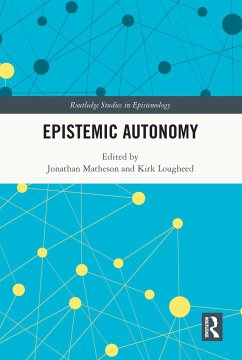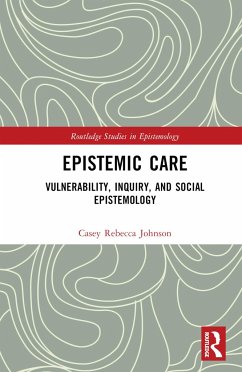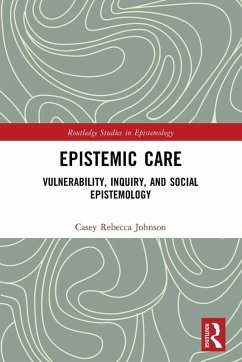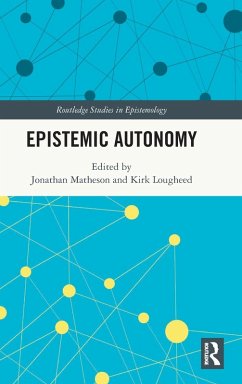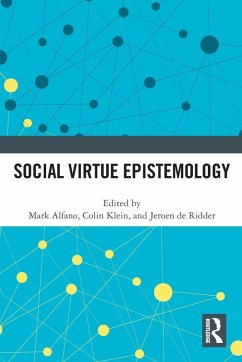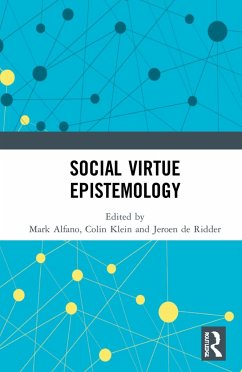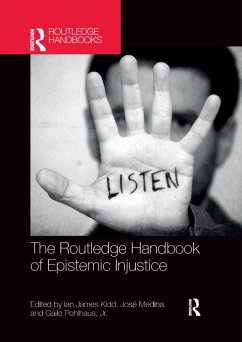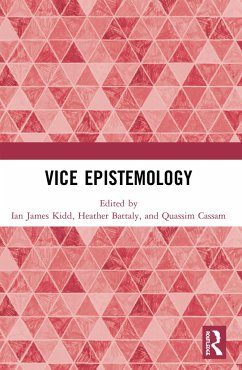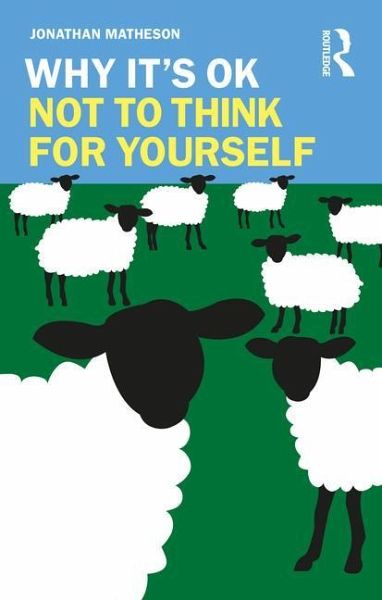
Why It's OK Not to Think for Yourself
Versandkostenfrei!
Versandfertig in 6-10 Tagen
22,99 €
inkl. MwSt.
Weitere Ausgaben:

PAYBACK Punkte
11 °P sammeln!
We tend to applaud those who think for themselves: the ever-curious student, for example, or the grownup who does their own research. Even as we're applauding, however, we ourselves often don't think for ourselves. This book argues that's completely OK.In fact, it's often best just to take other folks' word for it, allowing them to do the hard work of gathering and evaluating the relevant evidence. In making this argument, philosopher Jonathan Matheson shows how 'expert testimony' and 'the wisdom of crowds' are tested and provides convincing ideas that make it rational to believe something sim...
We tend to applaud those who think for themselves: the ever-curious student, for example, or the grownup who does their own research. Even as we're applauding, however, we ourselves often don't think for ourselves. This book argues that's completely OK.
In fact, it's often best just to take other folks' word for it, allowing them to do the hard work of gathering and evaluating the relevant evidence. In making this argument, philosopher Jonathan Matheson shows how 'expert testimony' and 'the wisdom of crowds' are tested and provides convincing ideas that make it rational to believe something simply because other people believe it. Matheson then takes on philosophy's best arguments against his thesis, including the idea that non-self-thinkers are free-riding on the work of others, Socrates' claim that 'the unexamined life isn't worth living,' and that outsourcing your intellectual labor makes you vulnerable to errors and manipulation. Matheson shows how these claims and others ultimately fail -- and that when it comes to thinking, we often need not be sheepish about being sheep.
Key Features
Discusses the idea of not thinking for yourself in the context of contemporary issues like climate change and vaccinationsEngages in numerous contemporary debates in social epistemologyExamines what can be valuable about thinking for yourself and argues that these are insufficient to require you to do soOutlines the key, practical takeaways from the argument in an epilogue
In fact, it's often best just to take other folks' word for it, allowing them to do the hard work of gathering and evaluating the relevant evidence. In making this argument, philosopher Jonathan Matheson shows how 'expert testimony' and 'the wisdom of crowds' are tested and provides convincing ideas that make it rational to believe something simply because other people believe it. Matheson then takes on philosophy's best arguments against his thesis, including the idea that non-self-thinkers are free-riding on the work of others, Socrates' claim that 'the unexamined life isn't worth living,' and that outsourcing your intellectual labor makes you vulnerable to errors and manipulation. Matheson shows how these claims and others ultimately fail -- and that when it comes to thinking, we often need not be sheepish about being sheep.
Key Features
Discusses the idea of not thinking for yourself in the context of contemporary issues like climate change and vaccinationsEngages in numerous contemporary debates in social epistemologyExamines what can be valuable about thinking for yourself and argues that these are insufficient to require you to do soOutlines the key, practical takeaways from the argument in an epilogue





